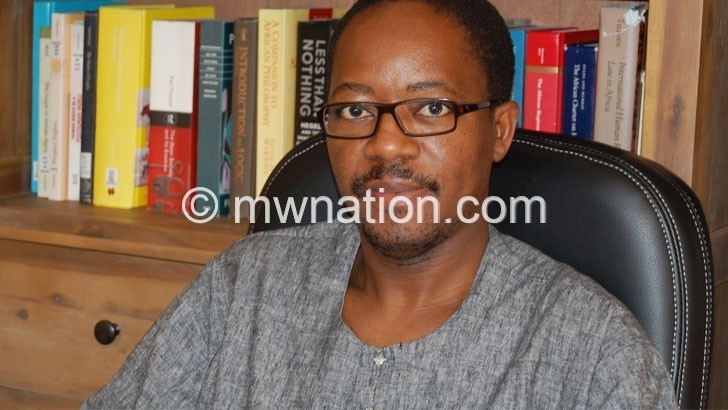Diaspora decry leadership crisis
Malawian academics and professionals in the diaspora have bemoaned the “growing leadership crisis in Malawi and the worsening socioeconomic conditions”.
In a statement issued yesterday and signed by 30 academics and professionals including Danwood Chirwa, Dean and Professor of Law, University of Cape Town, South Africa and Dr. John Lwanda, Senior Research Fellow, Institute of Health & Wellbeing, Glasgow University, United Kingdom, they expressed disappointment with the Tonse Alliance administration for failing to meet their campaign promises.
Reads the statement in part: “The Tonse Alliance government revealed, upon assuming power, mindboggling levels of looting and corruption committed under the previous government.
“Malawians expected that the new government would draw a line behind State looting and corruption, firstly, by investigating and prosecuting all those implicated and, secondly, by putting in place mechanisms to prevent the recurrence of such crimes.”

The academicians say almost two years down the line, corruption and looting are getting worse.
“We are alarmed at the regularity with which revelations about new corruption and looting scandals are being made. These scandals have implicated those at the very top of the government, businesspeople, civil servants, police, and military officials,” reads the statement.
On the Anti-Corruption Bureau (ACB), the statement says there are intimidation tactics aimed at the bureau’s director general Martha Chizuma, sometimes involving mercenary protesters.
The statement also laments lack of political will to address socioeconomic and other problems facing the country.
However, the Opposition also shares the blame for being fragmented, thereby lacking the legitimacy and credibility to serve as a rallying point for change.
“For the ordinary person, there is no hope. Malawi faces an existential crisis as a country, a crisis which is human-made and is, therefore, humanly resolvable,” it reads.
Therefore, the academics want the ruling parties to review the promises they made to the people of Malawi and ensure that they make a genuine effort to adopt and implement policies that would improve the economy and living conditions of the people.
“The government should suspend all those implicated in corruption and looting,” it reads.
But in a separate interview yesterday, Minister of Information and Digitisation Gospel Kazako, who is also government spokesperson, said they appreciate the role the academia plays as it produced a quality president in Chakwera.
He said Malawi is a nation under reconstruction and that they have to review and recalibrate government’s administrative and operational systems.
Said Kazako: “As such, that should never be mistaken for failure. It is not about leadership. It is about the values and ethics in the human resource the leadership needs to progress.
“We know the academia is trying hard to make contributions to the development of this country, but we believe there is also need to review and rethink the quality of human resource that passes through its processes.”
He said the country is in this situation because of some individuals that passed through tertiary education.
“The biggest cases of theft and corruption that motivated the review were committed by the educated,” said Kazako. n





